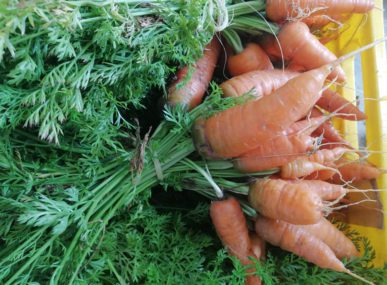“A lot of people don’t realize the nutritious value of algae,” Essid remarks. “Luckily, a number of NGOs actively work on extracting a product out of the green bloom.”
Aquaponie 4 C is an innovative concept of above-ground cultivation of vegetables and aquaculture. The company which was established in 2017 has faced a number of challenges, most important of which was the lack of awareness around algae.
“The return on investment wasn’t attractive either, even though in the Arab world we’re unable to secure food,” Essid adds. “That’s why we should resort to spirulina as a solid protein and vitamin source.”
Essid’s proposal to monetize the extraction and manufacturing of spirulina products is supported by a number of studies. “I said why not integrate the cultivation of spirulina with aquaponics since the needs for the fertilizer of plants and microalgae are almost the same,” Essid explains. “I start slowly with internet searches only to find that there are many people who are interested in this design.”
Challenges and opportunities:
The algae business could be a lucrative one in countries like Japan, however, processing and distribution can prove rather laborious and costly. “Currently, I am looking for the fund of $10,000 to install a teaching greenhouse to educate students, farmers, local farmers on the importance of saving water with simple facilities and reduce the use of chemical fertilizers,” remarks Essid. “The greenhouse also demonstrates how to overcome damage related to soil degradation, and climate change especially for vulnerable regions.”
Essid further adds that when it comes to financing, he is still in the research phase. “I am, however, very optimistic about the challenge of creating the first teaching farm,” he says.
Spirulina is a relatively fresh concept in Tunisia. “The market here is still a niche one. That means that we have to work a lot on disseminating information about the benefits of spirulina,” he says. “I started to make awareness programs for a few regional radio stations and attend fairs and also social networks that are starting to reach a high audience rate.”






